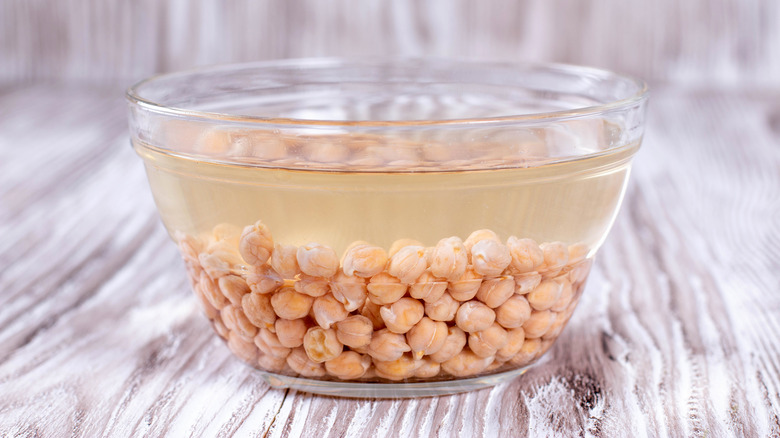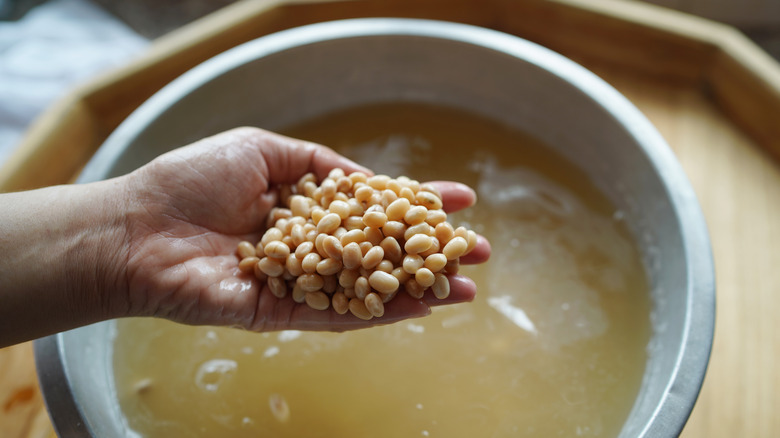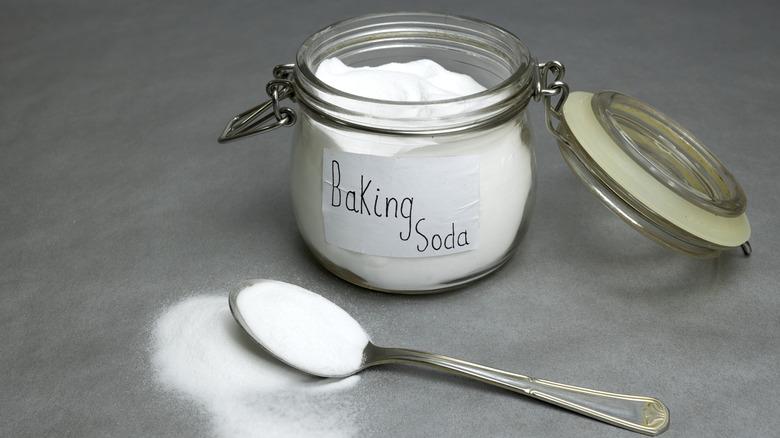Should You Be Brining Beans In Baking Soda?
We should be eating more beans, so why don't we? They're the magical food after all, and have plenty of health benefits to back up their reputation.
WebMD says that beans are a great source of vegetarian proteins. Some studies also claim that a diet that is dependent on beans as a primary protein source was linked to weight loss in adult men, via WebMD. Beans are also great for improving heart health as well.
That's not even mentioning that they can taste phenomenal. Beans are a great-tasting addition that can top a salad, or add some substance to an otherwise lacking recipe, via Healthline. They're versatile too. You can add some Mexican pinto beans to taco night, or break out a big bowl of baked beans for your next barbecue.
One challenge for folks who are incorporating beans into their diet for the first time is to figure out what to do with dry beans. They're a great, shelf-stable option to keep in the pantry. But figuring out how, or how long to let them soak can be a challenge.
How to soak beans
According to UCHealth Today, it isn't actually necessary to soak dried beans. Don't go trying to eat them raw, but just know that if you forgot to put your beans out the night before, you don't have to completely swap dinner plans. One of the main reasons for soaking beans in the first place is to help speed up cooking. Most beans will still cook though with enough time.
My Food Story claims that soaking beans also helps give them a better texture when they're cooked. Fewer beans will split and burst while they cook this way. Soaking beans can also make them easier to digest. Some common compounds found in beans that can cause gas or indigestion are mostly removed during the long soaking period. This might make enjoying a bean-heavy diet more bearable for those around you as well.
Another option is to brine your beans instead of simply soaking them. The process is similar, you just need to add salt to your soaking water. The Bean Institute says that this added sodium is helpful because it will swap with some of the calcium in the bean's outer shell. This helps to weaken the outer shell just enough that the beans will cook more evenly without ultimately bursting. This won't add a salty taste to the dish either, as very little sodium is properly absorbed by the beans.
Another common household item can help as well.
How baking soda helps
According to Livestrong.com, baking soda can help soften beans as well, and combining baking soda with a salt brine can help even the hardest-to-cook beans to soften properly. This is in large part to the fact that baking soda, a.k.a. sodium bicarbonate is also a type of sodium. Putting these two types of sodium together creates an abundance of the molecule within the brine. This gives more opportunities for the calcium and magnesium that have hardened the beans to soften and make them easier to cook.
The Bean Institute adds that baking soda plays another important role because it is also an alkaline substance. That means that it reduces the acidity of the brine which causes the molecules which normally harden a bean's surface to become smaller. This improves the effectiveness of the brine as well.
Just be sure not to step away from the stove if you choose this option. As Cook's Illustrated points out, adding baking soda to a pot of beans will also reduce its cooking time. This is a great trick for not only speeding up dinner preparations but also making use of those old beans that have become rock-hard sitting in the pantry.


